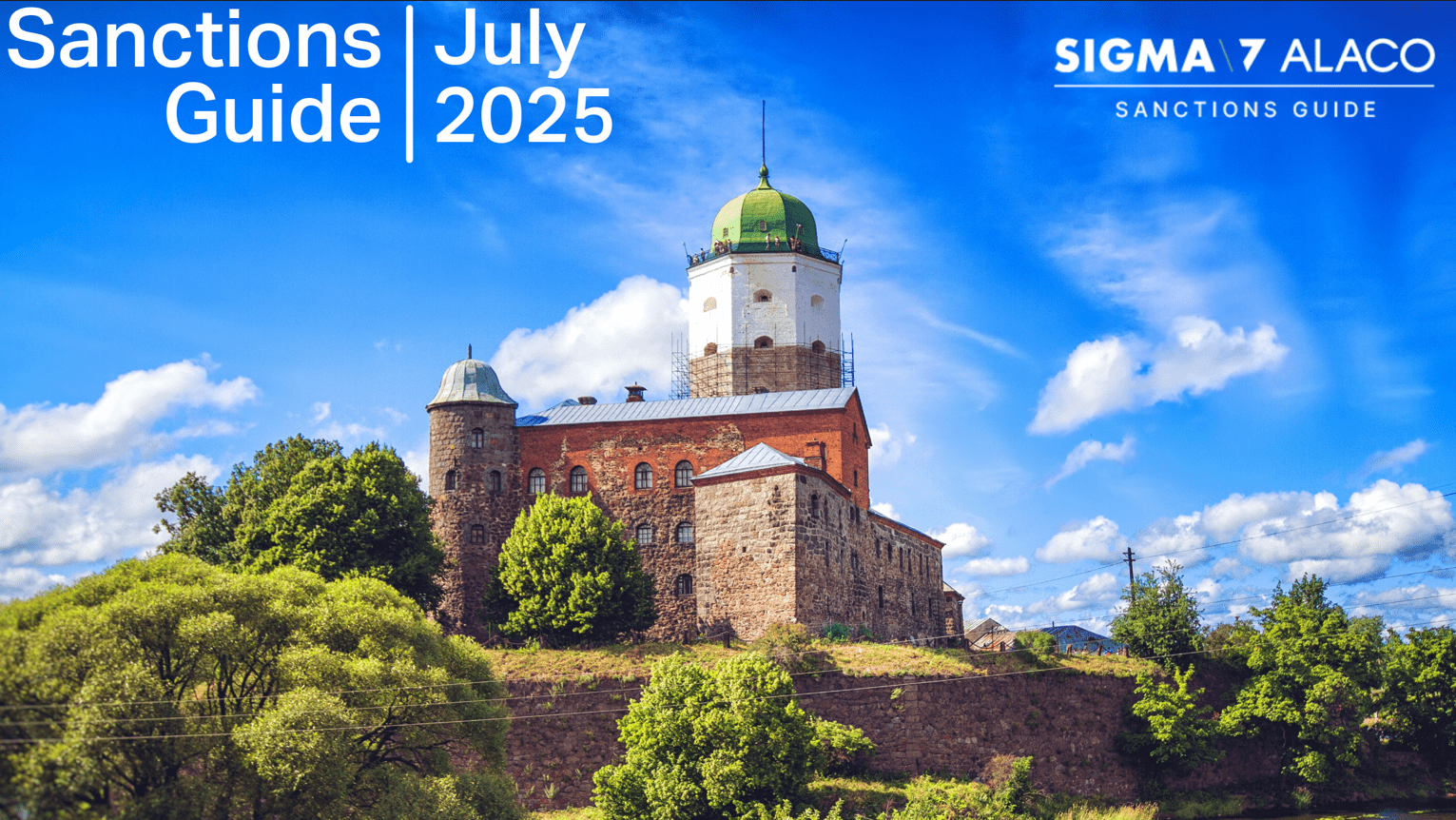Sanctions pressure continued to mount on Russia in July as the EU extended the scope of its regimes, passing its 18th sanctions package, which included stricter oil price caps, expanded banking and shipping restrictions, and new measures targeting disinformation actors and human rights abusers. The UK and US also ramped up Russia-related enforcement: the UK settled a major case involving over £1 million in sanctions violations, and charged a British-Russian developer for funding paramilitary groups. Meanwhile, the US targeted cybercrime networks tied to Russia and North Korea, sanctioned DPRK-affiliated hackers and IT facilitators, and pursued actions against individuals enabling revenue flows to hostile regimes.
Beyond Russia, the US again imposed extensive sanctions on Iran’s petroleum and terrorism financing networks, including entities in the UAE, Hong Kong, and Turkey. The UK designated multiple terrorist groups, including Palestine Action, and proscribed other extremist organisations. Enforcement was a central theme internationally, with the US Justice Department pursuing multiple settlements for sanctions violations involving Cuba, Iran, and North Korea—several of which saw reduced penalties due to self-disclosure. Regulatory updates also emerged across the UK, EU, and UN, with the UK sanctioning a host of individuals pursuant to its new irregular migration regime. The EU and UN respectively extended regimes against Lebanon and the Democratic Republic of Congo.
Finally, delisting efforts made several headlines as applications by notable figures such as Eugene Shvidler failed to be overturned. One widow of Assad regime associate Mohamed Makhlouf was accepted, while another former wife of the same individual was rejected, having failed to provide sufficient evidence as to a lack of circumvention risk.
Russia
- At the beginning of the month, the EU extended its sanctions in view of the Russian Federation’s actions destabilising the situation in Ukraine until the end of January 2026. Hungary and Slovakia initially voted against the EU’s 18th Russian sanctions package, which was passed later in the month and included measures to lower the oil price cap from $60 to $47.60 per barrel, to sanction an additional 105 vessels belonging to Russia’s shadow fleet, to ban transactions involving a further 22 Russian banks, to prohibit transactions related to Nord Stream 1 and 2, and to apply export restrictions and bans worth an estimated $2.5 billion.
- The EU further designated five Russian judges pursuant to its Russia human rights sanctions list as a result of their repression of civil society and democratic opposition in Russia, as well as being involved in the prosecution of Alexei Gorinov, who was sentenced to over 6 years in prison for disseminating ‘false information’ about the Russian armed forces. On its hybrid threats list, an additional nine individuals and six entities were sanctioned, including a pro-Russian Australian blogger implicated in spreading disinformation ahead of the 2024 US elections and directors of a Russian state-owned broadcaster of pro-Russian media in parts of Eastern Ukraine. The EU did, however, lift sanctions on three liquified natural gas tanker ships after receiving firm commitments that they would no longer transport Russian fuel, while the UK designated a further 135 ships related to Russia’s energy and oil sectors.
- In its largest compound settlement agreement related to the UK’s Russian sanctions, an unnamed business that exported goods to Russia in breach of sanctions paid over £1 million to HMRC in May 2025, as announced this month. The UK also charged British-Russian software developer Mikhail Vlasov with eight counts of violating UK sanctions by sending Bitcoin worth £4,000 to paramilitary groups in Ukraine.
- Associates of OFAC-sanctioned Russian banker Andrey Kostin meanwhile avoided trial in the US following allegations they helped the baker maintain a ski chalet in Aspen, Colorado. The individuals in question agreed to a deferred prosecution arrangement and prosecutors have suspended their investigation.
Other Designations
- The UK notably proscribed Palestine Action under the Terrorism Act 2000 this month, alongside Maniacs Murder Cult and the Russian Imperial Movement, making it a criminal offence to belong to or express support for these groups. Palestine Action applied for judicial review of the decision but was refused interim relief. The US meanwhile sanctioned the UN Palestine Special Rapporteur Francesca Albanese for directly engaging with the ICC in efforts to investigate, arrest, detain or prosecute US and Israeli nationals. Meanwhile growing pressure to apply sanctions on Israel continues to have a divided response: OFAC-sanctioned Albanese called this month for sanctions on Israel due to human rights abuses while the EU has faced accusations from human rights organisations of failing to confront Israel in an unlawful betrayal of Palestinians.
- The US designated four individuals and four entities for supporting cybercrime activity. These include Aeza Group, a bulletproof hosting services provider headquartered in Russia. The group sells digital services to facilitate ransomware attacks, personal information theft, and drug trafficking. Later in the month, an additional two entities and four individuals were designated, including a DPRK-based hacker who facilitated a scheme by which DPRK IT workers accessed US employment with fake identification. A Russian national who facilitated revenue generating activities for the DPRK by hiring North Korean IT workers was also sanctioned.
- With regards to Iran, the US continued to target Iran’s shadow fleet and terrorism financing network, sanctioning eight individuals and 21 entities, recognised as Iranian petroleum transporters or Hizballah financiers. Additionally, 12 oil tankers were identified as blocked property as a result of being owned or controlled by sanctioned individuals. Later in the month, a further 22 entities across the UAE, Hong Kong, and Turkey were sanctioned for facilitating Iranian petroleum sales and acting as front companies for financial transfers benefiting the IRGC.
- On the sectoral front, two individuals and one entity were added to the UK’s Chemical Weapons sanctions list for their membership of the Radiological, Chemical and Biological Defence Troops of the Russian Ministry of Defence and their supply of chemical grenades to the Russian military respectively. In the EU, eight individuals and one entity were added to the global human rights sanctions list for committing serious human rights violations and abuses on behalf of the Iranian state bodies outside of Iran. Six members of Venezuela’s Tren de Aragua gang were designated pursuant to OFAC’s transnational criminal organisations and terrorist financing regimes. Venezuela’s Cartel de los Soles was also designated for its support to Tren de Aragua; the organisation is understood to be headed by Venezuelan President Nicolas Maduro.
- This month saw a number of noteworthy delisting applications. Belarusian chemicals company Grodno Azot had applied to overturn its December 2021 listing by the EU as part of its Belarusian sanctions programme. The decision was affirmed in February 2023 and a subsequent appeal rejected this month, due to findings that the company’s dividends are a source of substantial income for the Lukashenko regime. Elsewhere, the 2023 and 2024 listing of Hala Almaghout, widow of Mohammed Makhlouf, the uncle of former president Bashar Al Assad, was annulled in light of evidence that she was a victim of intimidation and persecution by the former Syrian regime and the Makhlouf family. She remains sanctioned due to being relisted in the period between her hearing and the handing down of the judgement. Delisting applications for three further members of the Makhlouf family, including a different widow of Mohammed Makhlouf, were rejected. In the UK, Abramovich associate Eugene Shvidler failed to overturn sanctions against him after his listing was upheld by the Supreme Court.
Regulation Amendments
- The US continued its easing of measures against Syria, revoking most sanctions regimes but retaining specific measures against members of the former Assad regime, mirroring actions taken by the EU. Notable entities no longer subject to restrictions include the National Defence Forces, the 1st and 4th Divisions of the Syrian Arab Army, and Syria’s state-run oil company, Sytrol.
- The UN Security Council voted to extend its sanctions regime against the Democratic Republic of Congo for a year, continuing its arms embargo as well as asset freezes and travel bans in response to hostilities in North and South Kivu. The UN further amended its Haiti sanctions regime to create a new designation criterion for people and entities engaging in destabilising activities through the illicit exploitation or trade of natural resources. The arms embargo for Haiti was further expanded to prohibit all armaments as well as technical and financial support for military activities. These amendments have also been adopted by the UK, where the arms embargo on Azerbaijan and Armenia was also amended.
- The UK introduced a new regime targeting irregular migration, announced back in January, shortly followed by its first designations: 20 individuals and five entities found to be involved in people smuggling networks in Turkey, Iraq, across the Balkans among others. Two general license for this regime were issued, permitting a person to make funds available so UK designated persons can meet their basic needs, and permitting FCA officers to carry out duties otherwise permitted by sanctions.
- The UK also effected measures to allow Treasury debts to be settled, provided payments to UN-designated persons satisfy sovereign debt obligations and the person making the payment has reasonable cause to suspect the obligation arose before the designated person was sanctioned. These measures apply to UK sanctions on the Central African Republic, Haiti, Libya, South Sudan, and Yemen.
- EU sanctions against Lebanon were renewed until July 2026, enabling the designations of individuals and entities who persistently hamper the formation of government in Lebanon, commit serious financial misconduct in relation to public funds, and obstruct or undermine critical economic or public sector reforms in the country. There remain, however, no designations within this list.
Enforcement
- The US was particularly active in the enforcement space this month, with several notable settlements below the maximum penalty owing to steps taken by companies to self-disclose violations. For example, OFAC announced a $608,825 settlement with Delaware-registered global logistics company Key Holding after its Colombian subsidiary facilitated 36 freight shipments to Cuba in violation of US sanctions between 2022 and 2023. The company could have faced a maximum penalty of $4 million had it not self-reported its sanctions violations. A similar reduced penalty was applied to Harman International Industries Inc for its 11 violations of sanctions on Iran. In this instance, only $1.45 million of a maximum $4 million penalty was handed down, in light of self-disclosure and other mitigating factors. Finally, Interactive Brokers avoided the most substantial fine of the trio, totalling $60 million, instead agreeing an $11.8 million settlement in light of improvements to its compliance framework, voluntary disclosure, and the limited economic benefits to sanctioned persons who accessed its systems. In contrast, the US’ Bureau of Industry and Security agreed a $4.25 million settlement with Alpha and Omega Semiconductor Inc over 15 export controls violations, for which the maximum fine was $5.6 million.
- This month also saw the conviction and arrest respectively of two individuals over sanctions violations. Chicago’s District Court convicted Ahsraf Al Safoo, leader of Khattab Media Foundation, of conspiring to provide material support to Islamic State by sharing IS propaganda online. At his sentencing in October he will face a maximum penalty of 130 years in prison. Meanwhile, the CEO of an Iranian engineering company, Bahram Ostovari, was arrested on charges of violating sanctions on Iran, allegedly using two Emirati front companies to export goods; Ostovari will face a maximum of 20 years in prison if convicted.
- Also in the US, the Justice Department announced enforcement action against illicit revenue generation schemes designed by the Democratic People’s Republic of Korea to evade sanctions in 16 US states. These actions targeted North Korean individuals who obtained US employment using stolen or fake IDs to steal export-controlled US military technology and virtual currency.
- In France, the Central Bank’s Supervision and Resolution Authority fined Banque Delubac et Cie EUR 600,000 for sanctions compliance failures, including its failure to implement internal systems to apply EU asset freeze sanctions.


